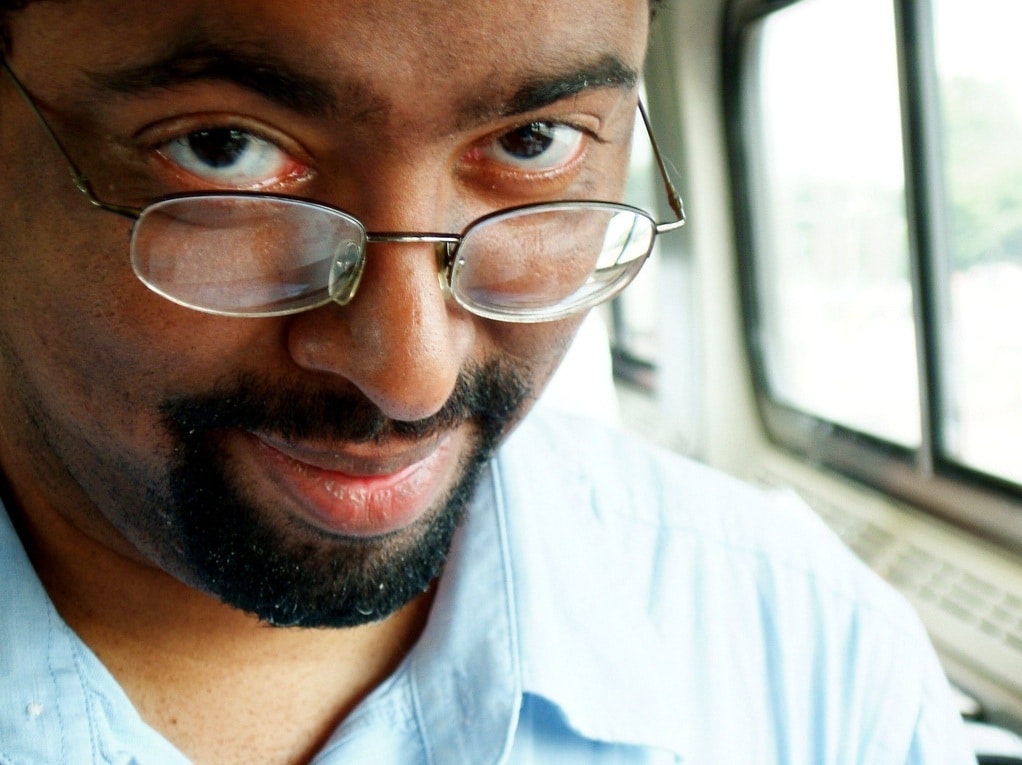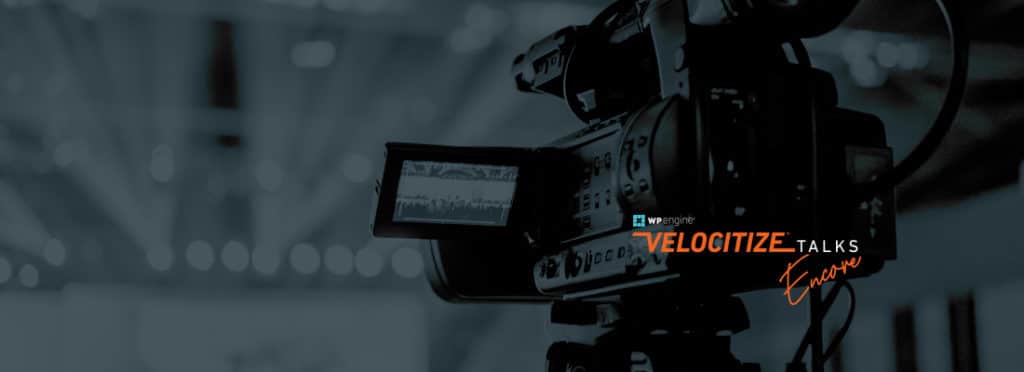Welcome to Velocitize Talks Encore, a new series where we catch up with some of our favorite industry leaders and all-around awesome people who have appeared on Velocitize Talks. In this interview we speak with David Dylan Thomas, Principal of Content Strategy at Think Company.
Thomas appeared on Velocitize Talks in April of 2019. Watch the full episode here.
We aren’t necessarily having the smartest conversation around bias. It’s a lot of looking for quick fixes and checking off boxes.
In just one word, how would you describe the importance of storytelling in marketing today?
Authenticity. Which is to say “nothing about us, without us.” More companies are going to find themselves marketing to increasingly diverse communities. As they do, they need to be sure that the stories they tell about those communities are told with and by those communities.
How do you see the marketing and digital relationship evolving?
If we’re talking about the content producers and the “buckets” and channels that content is going out in, I see them straight up merging. At Think Company we’ve had our content strategists working closely with developers to build out content models that make sense for users and for content creators. I see that evolving to the point where it becomes one role spread out across a handful of people.
What do you see as the biggest trends in content and evidence-based design?
In content, I would say the diversification of content producers and editors is the most important trend. Riffing on the above answer, the more diverse your content production team, the more diverse the audience you can speak to with true impact.
People are genuinely curious about other cultures, and specificity sells.
The design tools we’re using to gather data are getting cheaper and more sophisticated. A few years ago a tool like Hotjar would have been prohibitively expensive. These days it’s within reach for a mid- or even small-sized firm. Cheap tools like AirTable allow us to be much more buttoned up about how we store and relate data. And tools like Zoom are making interviews even easier.
How do you effectively incorporate social impact into content marketing?
There’s no substitute for actually caring about social impact if you want to have effective social impact. Social impact costs. It costs time, thought space, and straight-up budget. You have to want it. If you don’t, something else will always take priority.
When you’re listing what success looks like for the campaign, the relevant social impact has to be part of it. You work backwards from there. Otherwise it will feel inauthentic. Google “participatory design” for approaches that involve people who usually have no power in these kinds of processes.
What have been the biggest changes in cognitive bias over the past two years? Do you see a positive trend?
Cognitive bias itself never changes. The conversation we’re having around bias has increased dramatically over the last few years.
Ten years ago, the idea of Starbucks closing their stores for a day for bias training would have been implausible. Now it’s considered a shrewd reaction to a PR crisis.
We aren’t necessarily having the smartest conversation around bias. It’s a lot of looking for quick fixes and checking off boxes. The next step needs to be about thinking long-term about bias and truly understanding what it is and the systemic things that are nurturing and sustaining that bias.
What do you attribute the success you’ve had in your career to?
Persistence. Luck. I’ve been persistent about speaking my mind about a number of issues. I studied cognitive bias just for fun (!) and wouldn’t shut up about it to the point where my friends were like, “Dave, please just get a podcast,” which then led to more podcasts, more speaking gigs and more clients.
I’ve been lucky in that I was born in one of the greatest countries in the world at a time when being black in that country is less of — but still a major — disadvantage than it ever has been. I was lucky to have an amazing mother who encouraged me. I was lucky to have amazing mentors.
I think it’s important to acknowledge that while persistence and hard work matter, luck and privilege play a much larger role in success than a lot of us are willing to admit.
What makes you curious?
I think I was just born that way. You know how some five-year-olds just keep asking why? I never stopped. I get particularly curious about why people do the things they do. I get curious about folks finding ways to collaborate to reduce suffering. I get curious about crazy science facts (I recently learned about “ballooning spiders.” Google it sometime and then good luck going to sleep).
What’s the best advice you’ve ever been given?
“It is impossible to listen and react at the same time.” I think about this every day. It came from Alex Hillman, co-founder of the Indy Hall coworking community. Basically if you’re listening to someone speak and then, in your head, start reacting and thinking, “Oh, I’ve got a great story for this,” the second you start thinking that, you’ve stopped listening. And it makes a difference.
People generally like you more if you listen to them. You’re probably the first person to do that for them all day.
When do you go “off grid”?
I don’t think I ever do. Although, I’m never terribly “on grid.” For example, when I look at Twitter or Facebook, I only look at a couple of posts, then I’m out. I don’t usually go down rabbit holes. So I never really feel the need to go “off grid.” I kind of get what I need from the web then peace out.
If you weren’t working in content strategy and marketing, you’d be a…
Mathematician. (I’d say filmmaker, but I kind of do that anyway). I know from friends who’ve studied it that once you reach a certain level in mathematics, you’re no longer dealing with numbers but much larger theories about how the world works, the underlying nature of reality. That sounds interesting to me.

David Dylan Thomas serves as Principal of Content Strategy at Think Company and is the creator and host of the Cognitive Bias podcast. He is also the creator and director of Developing Philly.
Learn more about Think Company on its website. You can follow Thomas on Twitter at @movie_pundit.





Join the conversation